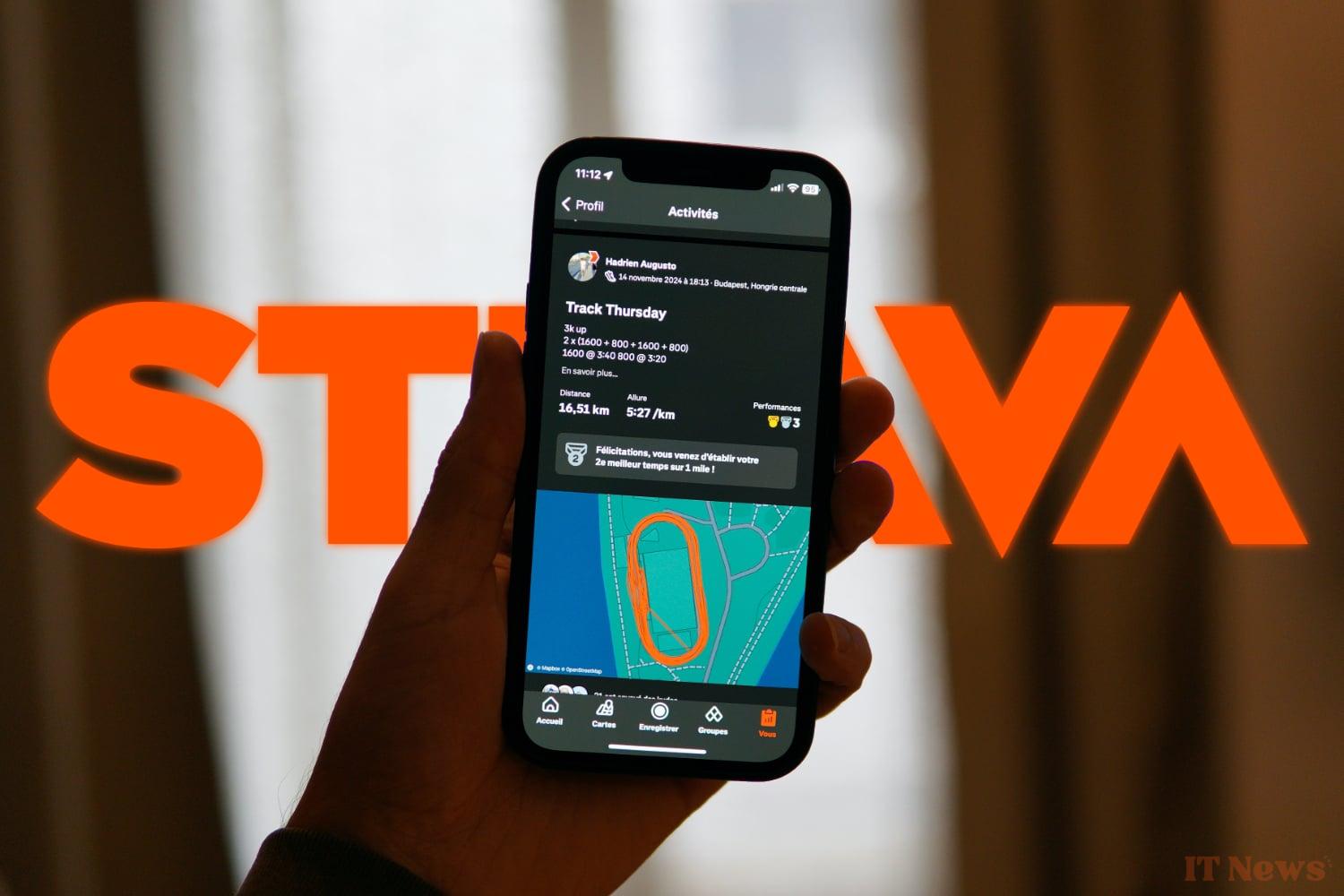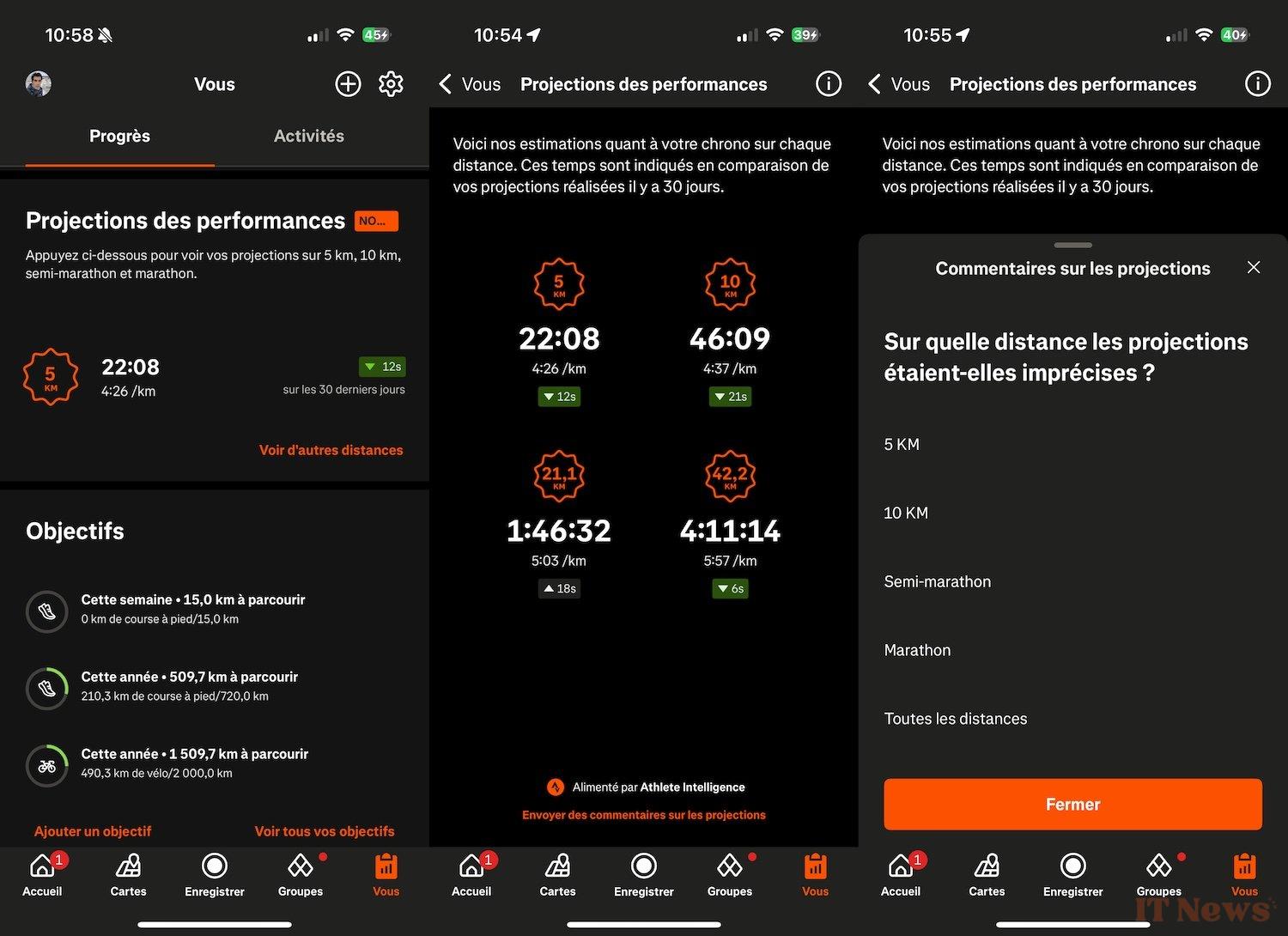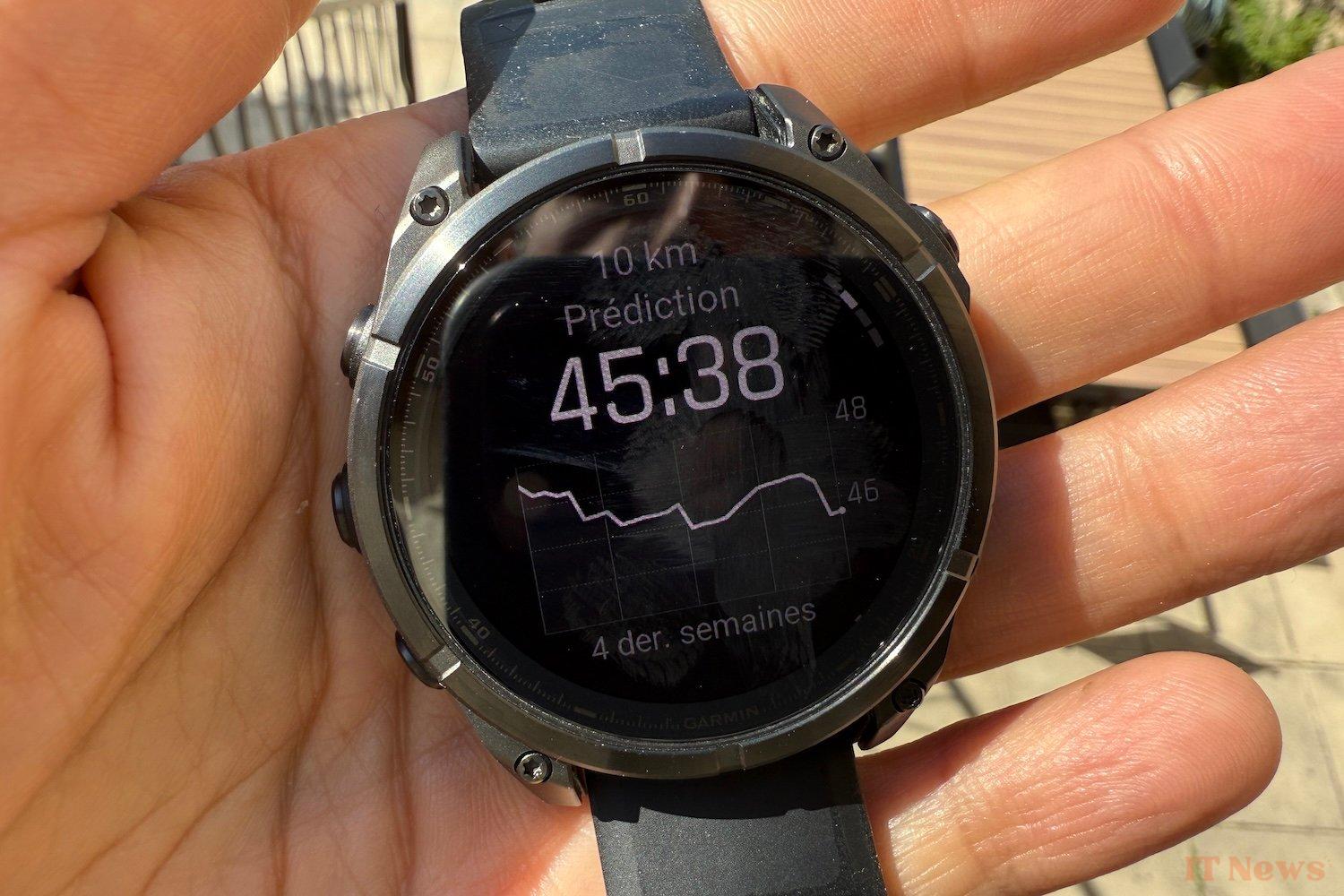For the past few hours, Strava, the most popular social network for athletes, has been introducing a new feature to its app: a performance predictor. The tool is already well-known to some sports watch users; it's now integrated into the online platform. Its goal: to be able to predict a possible time for the main running formats (5 km, 10 km, half-marathon, marathon). To determine this time, the app relies on the stratospheric amount of data collected from its users and their past and recent performance levels. Of course, this tool is reserved for premium members only.
How do I access it? Simply go to the "You" section of the app and choose the "Progress" option. Performance projections are located in a very prominent position, just below the summary of the past week's activities. By default, the app only displays one time: the 5 km. To get predictions for other distances, simply click on "see other distances." This option comes from the Athlete Intelligence tool, the AI launched last spring that is theoretically capable of analyzing the performance of each activity.
Is Strava's performance predictor accurate?
Is Strava really capable of predicting your time for your next 10K or half marathon? Above all, does it do it as well as Garmin, Suunto, or Polar, which integrate this feature into their watches? Nothing could be less certain.
Indeed, we carefully analyzed the race predictions that Strava displays. We compared them with those of our Garmin watch and with the most recent races we have recently completed. Two trends are immediately apparent. The first is a certain conservatism in the projections. The tool tends to display a very accessible time for us.
The other notable fact is that Strava's predictions are relatively far from those of our Garmin watch. Above all, the longer the distance, the greater the prediction gap. Here's what the two predictors tell us:
| Strava | Garmin | |
| 5 km | 22:08 | 21:19 |
| 10 km | 46:09 | 45:38 |
| Half marathon | 1:46:32 | 1:43:48 |
| Marathon | 4:11:14 | 3:53:57 |
So who should we believe? Which one is closest to reality? Unsurprisingly, our watch is closest to our recent 5K and 10K times. We don't have recent half-marathon and marathon measurements to push the comparison that far. Yet, both services use strictly the same data. We run with our Fénix 8 and we record each outing on Strava, which therefore uses the GPS and cardio data from the watch.
A more precise time calculation quickly?
For the moment, Strava's predictions are not really convincing, which is surprising given the data the service has about us and of its ability to process them. However, we probably shouldn't condemn the feature so quickly. Indeed, with Athlete Intelligence, Strava has already proven that it is capable of launching a feature that is initially quite imprecise and making it much more efficient quickly. At least, this is what appeared in our test of Strava's AI after 5 months. Does the performance predictor suffer from the same syndrome? That of a tool launched a little quickly, but which could progress just as quickly?
Strava certainly seems determined to focus on leveraging its users' data. The launch of Strava AI last year initiated this major shift, the acquisition of Runna a few days ago is clearly moving in this direction, and the launch of the performance predictor also follows this logic. Even if its attempts remain imprecise for the moment, Strava is determined to become your next running coach.





0 Comments